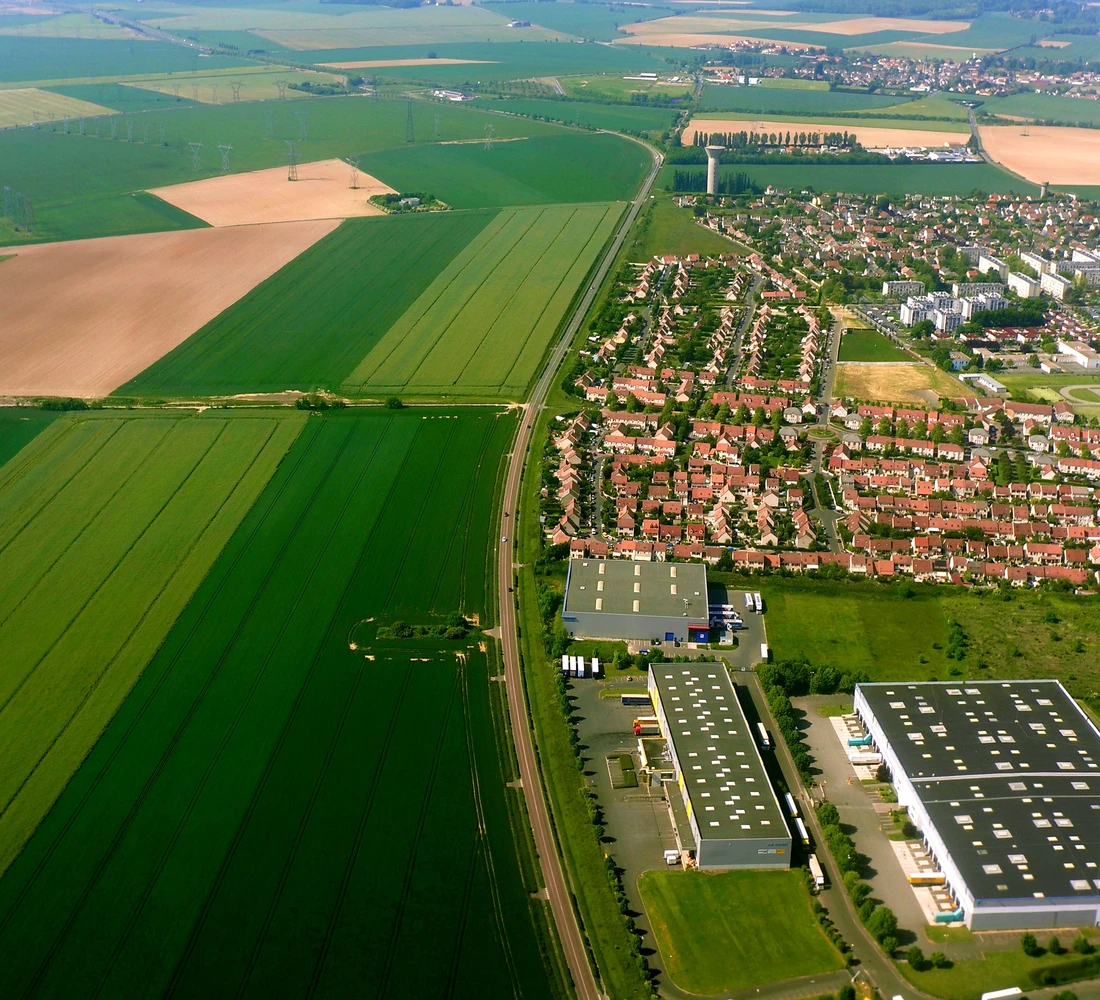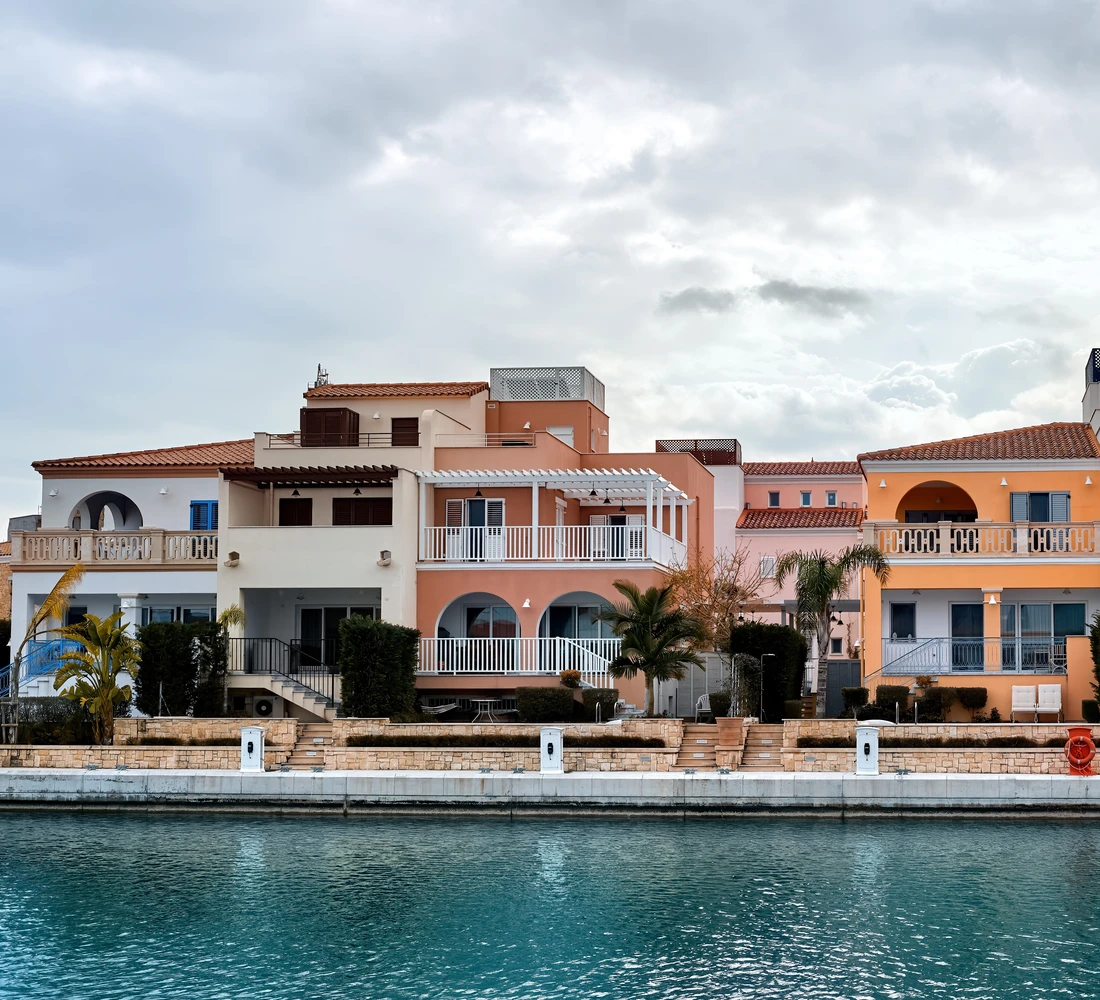In our article titled "Investing in Turkish Land: Is It a Safe Option?", we comprehensively review all opportunities, advantages, and regulations available to Arab and foreign investors.
Turkey is considered one of the most prominent real estate markets attracting foreign capital and investments, where investors can benefit from investment opportunities in Turkish land.
Whether through buying land in Turkey for foreign investors or searching for land for sale in Turkey for investors with the aim of development, resale, or benefiting from returns on investment in Turkish land in the short and long term.
In this article, we will address all available paths, including land ownership in Turkey for foreigners, and different types of land such as agricultural land in Turkey for investment, residential land in Turkey for investment, as well as commercial land investment in Turkey.
We will also discuss the conditions for buying land in Turkey, and review the risks of investing in Turkish land and what you need to know before making an investment decision, with a guide to buying land in Turkey, and the best areas to buy land in Turkey for investors.
In addition to a specific clarification regarding residency and whether owning land in Turkey grants you citizenship, we clarify that land ownership does not grant citizenship unless it is residential or commercial building land, or will be built upon later.
We will also touch on the role of Mbany Real Estate as a specialized assistance entity to facilitate all investment steps safely, which gives the investor a comprehensive vision that enables them to evaluate the feasibility of investing in Turkey in the short and long term.
Why is investing in Turkish land attractive?
Key Attractions
Turkey is considered one of the most important promising markets for real estate investment, due to its strategic location at the crossroads of continents between Europe and Asia, which makes it a growing market for multiple economic opportunities.
Investing in Turkish land provides investors with the opportunity to benefit from an emerging economy that is constantly improving, as well as providing a relatively clear legal environment for foreign ownership, where many investors can benefit from incentive programs and opportunities to buy land in Turkey for foreign investors in strategic areas. Among the most prominent attractions are also:
- Availability of land of various types at competitive prices compared to European countries.
- High demand for land for sale in Turkey from investors from Arabs and foreigners looking for safe opportunities.
- Possibility of achieving good returns on investment in Turkish land in the long term, especially in developing or coastal areas.
Increasing Demand and Competitive Prices
Recent studies indicate that demand for land in Turkey is constantly increasing from Arab and foreign investors, which enhances the opportunity for land value to increase in the long term.
Prices, although high compared to previous decades, remain attractive to investors looking for high-yield investment opportunities in Turkish land.
In addition, additional profits can be achieved through land development, whether it is residential land in Turkey for investment or agricultural land in Turkey for investment, or through commercial land investment in Turkey. This makes Turkey an attractive and realistic market for investors looking for relative stability with strong growth opportunities.
Linking to the Legal Advantages for Foreigners
Turkish laws allow foreigners to own land, with some restrictions on areas and locations. Foreign investors can own land in Turkey relatively easily in most urban and coastal areas, while adhering to legal regulations.
Some regions also offer additional facilities for investors, such as granting fast building permits or facilities to obtain residency when buying land in Turkey for foreign investors, which increases investment security.
Types of Land Available for Investment in Turkey
Agricultural Land in Turkey for Investment
Agricultural land in Turkey is an excellent option for those wishing to invest in Turkish land in the long term.
Agricultural land usually requires additional investments such as agricultural projects or specific development programs, and compliance with the conditions of land ownership in Turkey for foreigners according to government regulations is required.
Agricultural land in Turkey can be relatively low cost compared to residential or commercial land, but it requires expertise in agriculture or management of agricultural production projects to ensure the realization of returns on investment in Turkish land.
Residential Land in Turkey for Investment
Investing in residential land in Turkey provides great opportunities to achieve quick profits when building residential units or real estate projects.
Residential land is usually easier in terms of licenses and obtaining building permits, and owners can apply for residency, making it a preferred option for Arab investors.
These lands are also suitable for developing medium to large projects, whether villas, residential complexes, or tourism projects, which doubles the value of investment in Turkish land in the long term.
Commercial Land Investment in Turkey
Investing in commercial land in Turkey gives investors the opportunity to achieve higher profits than agricultural or residential land, but it comes with additional challenges such as choosing a strategic location within industrial or commercial areas, and knowing the laws regarding commercial licenses.
Returns from commercial land are usually higher, especially if they are in emerging areas or close to large infrastructure projects, which enhances the importance of strategic planning before buying land in Turkey for foreign investors.
Conditions and Procedures for Buying Land in Turkey for Foreign Investors
Key Legal Conditions
To ensure the success of the investment process in Turkish land, foreign investors must comply with the following legal conditions:
- The land must be within an area that allows ownership for foreigners, away from areas that are prohibited for security or military reasons.
- The total area of land owned by the foreigner must not exceed 30 hectares.
- Obtaining a Turkish tax number, opening a local bank account, and preparing an official appraisal report (ekspertiz) before completing the purchase.
Special Notes for Foreigners
Turkish law places restrictions on some lands, especially agricultural lands or those located within specific areas. You must ensure that the land to be purchased is eligible for foreign ownership in accordance with the conditions of buying land in Turkey, and that it allows the possibility of building or development later.
The Role of Mbany Real Estate in the Purchase Process
Mbany Real Estate is considered one of the leading companies in the Turkish market, and provides comprehensive services to Arab and foreign investors, including:
- Providing legal advice related to land ownership in Turkey for foreigners.
- Inspecting land and ensuring the status of ownership and licenses.
- Managing buying and selling operations to ensure smooth procedures and achieving the highest returns on investment in Turkish land.
Returns on Investment in Turkish Land and its Profitability
Short-Term Returns
Investors can achieve good profits by developing residential or commercial land, or reselling land plots for sale in Turkey to investors after a short period of purchase.
Coastal and urban areas offer excellent opportunities to achieve returns on investment in Turkish land in the short term, especially with the increasing demand for real estate in Turkey.
Long-Term Returns
In the long term, land can see a significant increase in value, especially with economic developments, improved infrastructure, and increased demand for real estate.
Investing in real estate and land in Turkey in 2026 is a strategic step for the future, where sustainable growth in financial value can be achieved.
How to Calculate Returns
To calculate returns, the following must be taken into account:
- Land purchase price + purchase costs (taxes, fees, appraisal, legal fees).
- Costs of waiting or developing the project.
- Future sale value or income from rent if the land is developed.
Comparing these factors with other options such as apartments or residential projects allows the investor to make the best decision to achieve maximum returns on investment in Turkish land.
Risks of Investing in Turkish Land and Is It a Safe Option?
Legal Risks and Ownership Regulation
One of the most prominent risks of investing in Turkish land is the existence of legal restrictions on some lands, such as agricultural lands or those located in sensitive areas, which may affect the investor's ability to build or develop the land.
Economic and Political Risks
The Turkish economy is experiencing fluctuations in exchange rates, inflation, and economic policies, which can affect the safety of the investment.
Therefore, investors always ask the question: Is investing in Turkish land safe? The answer depends on the location, the law, and experience in investment management.
Risks Associated with Construction or Use
In lands that do not have building permits, there is a risk of being unable to develop, and does owning land in Turkey grant you citizenship? is not a general rule. Ownership alone does not grant citizenship unless the land is residential or commercial building land or will be built upon in accordance with Turkish laws.
Is it a Safe Option?
In short, investing in Turkish land can be a relatively safe option if the laws are adhered to, a strategic location is chosen, and local experts such as Mbany Real Estate are consulted. With proper planning, risks can be reduced and good profits can be achieved.
A Step-by-Step Guide to Buying Land in Turkey
Step 1: Research and Define
Your Goal Start by defining your investment goal: Are you looking for land for sale in Turkey for investors to develop a commercial project, residential land in Turkey for investment to build a residential complex, or agricultural land in Turkey for investment? The type of land you choose affects returns and risks.
Step 2: Legal Verification and Location
Verify land ownership, building permits, and the absence of legal restrictions. Collaborating with a lawyer or local mediator is important to avoid any future legal problems.
Step 3: Signing the Contract and Transfer of Ownership
The application for ownership transfer is submitted through the Land Registry Directorate (Tapu), and the investor is granted an official title deed, guaranteeing their legal rights.
Step 4: Follow-up After Purchase
In the case of agricultural land, you must comply with the agricultural program submitted to obtain permits. For residential or commercial land, you can plan for construction or development immediately after obtaining official approvals.
Step 5: Development or Sale
Clearly define your exit strategy, whether by developing the land to increase its value, or reselling it when prices rise, to ensure you achieve the best return on investment in Turkish land.
Step 6: Work with Mbany Real Estate Company
Collaborating with Mbany Real Estate Company ensures the process runs smoothly, providing comprehensive legal and financial services, as well as advice on the best types of land and investment areas.
Best Areas to Buy Land in Turkey for Foreign Investors
Major Coastal Areas
Such as Istanbul, Antalya, and Izmir, where land demand is high and investment opportunities are strong. These areas offer good value for buying land in Turkey for foreign investors.
Developing Areas and Infrastructure
Focusing on areas undergoing infrastructure development contributes to increasing land value in the long term, especially for commercial and residential land.
Interior and Agricultural Areas
Investing in inland or agricultural land is less expensive, but requires expertise in developing agricultural land to ensure a return on investment in Turkish land.
Tips for Choosing an Area
- Make sure infrastructure and services are available.
- Avoid restricted or military areas.
- Consult local experts on future growth and development trends.
What is the Relationship Between Real Estate and Land Investment in Turkey 2026 and the Future?
A Future Outlook to 2026
The real estate and land investment market in Turkey 2026 is expected to see continued growth, with increasing demand for developable land, and you should focus on strategic locations to ensure profitability and security.
Potential Expectations and Transformations
Changes in residency or citizenship laws or regulations may affect investment decisions, so it is essential to follow developments constantly. And how to prepare:
- Monitor legal changes regularly.
- Work with a lawyer and local legal advisor.
- Prepare a clear plan to manage or sell the land when needed.
Frequently Asked Questions: Investing in Turkish Land: Is It a Safe Option?
+
Is investing in Turkish land safe ?
Yes, it can be relatively safe when complying with the laws, choosing a strategic location, and consulting local experts, while considering the return on investment in Turkish land and the potential risks.
+
What are the conditions for foreigners owning land in Turkey ?
These include: the land must not be in prohibited areas, must not exceed a certain area, have an appraisal report, open a bank account, and obtain a Turkish tax number.
+
Does owning land in Turkey grant you citizenship ?
Not always; the land must be residential or commercial building land, or it will be built upon, or within the Turkish citizenship by real estate investment program.
+
What types of land can be invested in ?
Agricultural land, residential land, commercial land, and each type has its own advantages and conditions.
+
What are the expected returns from investing in Turkish land ?
It varies depending on the type of land, location, and investment period, but the Turkish market offers good opportunities to achieve sustainable growth in the financial value of the land.
Conclusion: Investing in Turkish Land: Is It a Safe Option?
In our summary of the topic "Investing in Turkish Land: Is It a Safe Option," we find that Turkey offers promising opportunities for real estate investment, whether through buying land in Turkey for foreign investors, or investing in agricultural land in Turkey for investment and residential land in Turkey for investment and investing in commercial land in Turkey.
By complying with the conditions for buying land in Turkey, choosing locations carefully, following legal developments, and working with Mbany Real Estate Company, a return on investment in Turkish land can be achieved with relative security, while minimizing the risks of investing in Turkish land.
A well-considered investment in Turkey can be an important addition to your investment portfolio in the short and long term, especially with the positive outlook for the real estate and land investment market in Turkey 2026.






